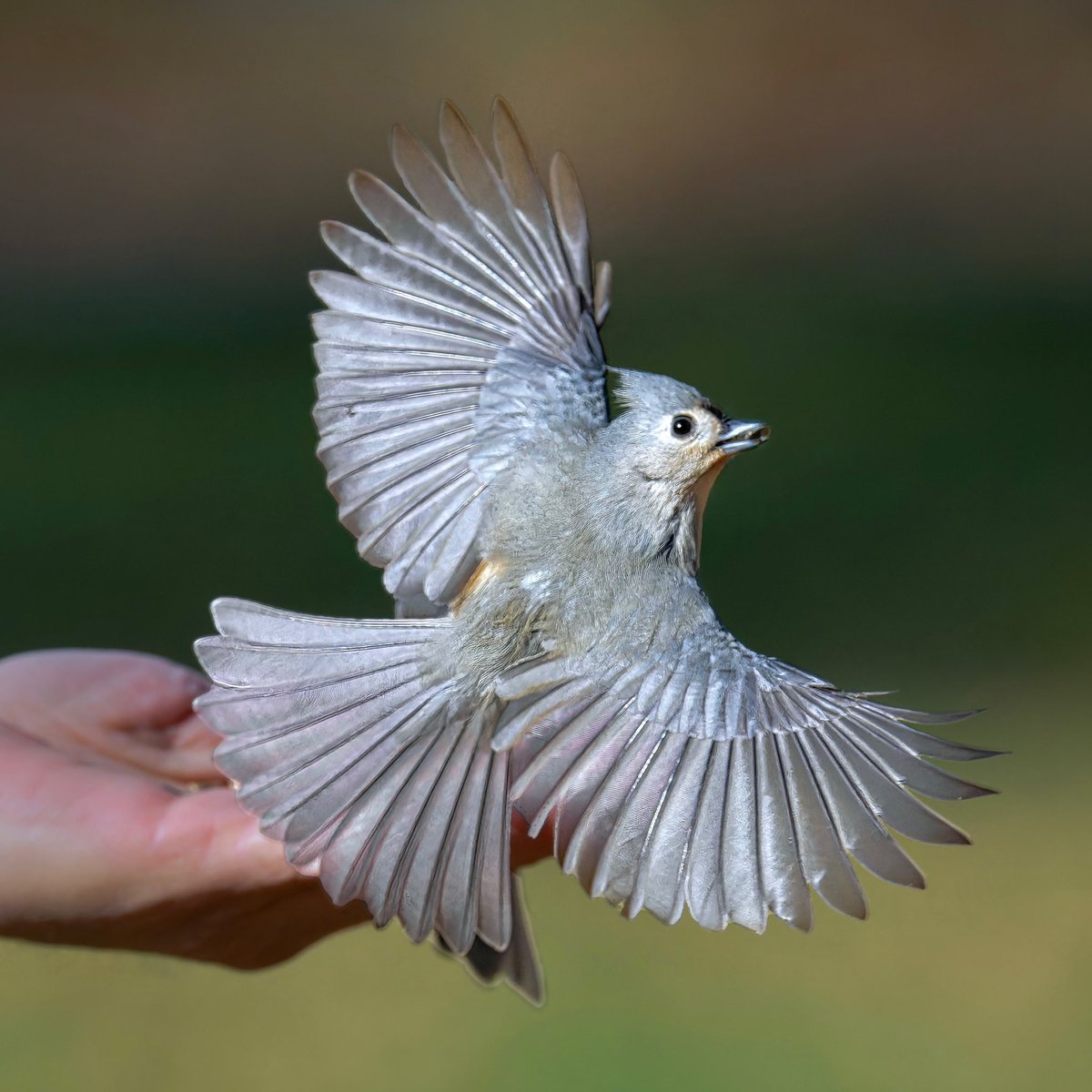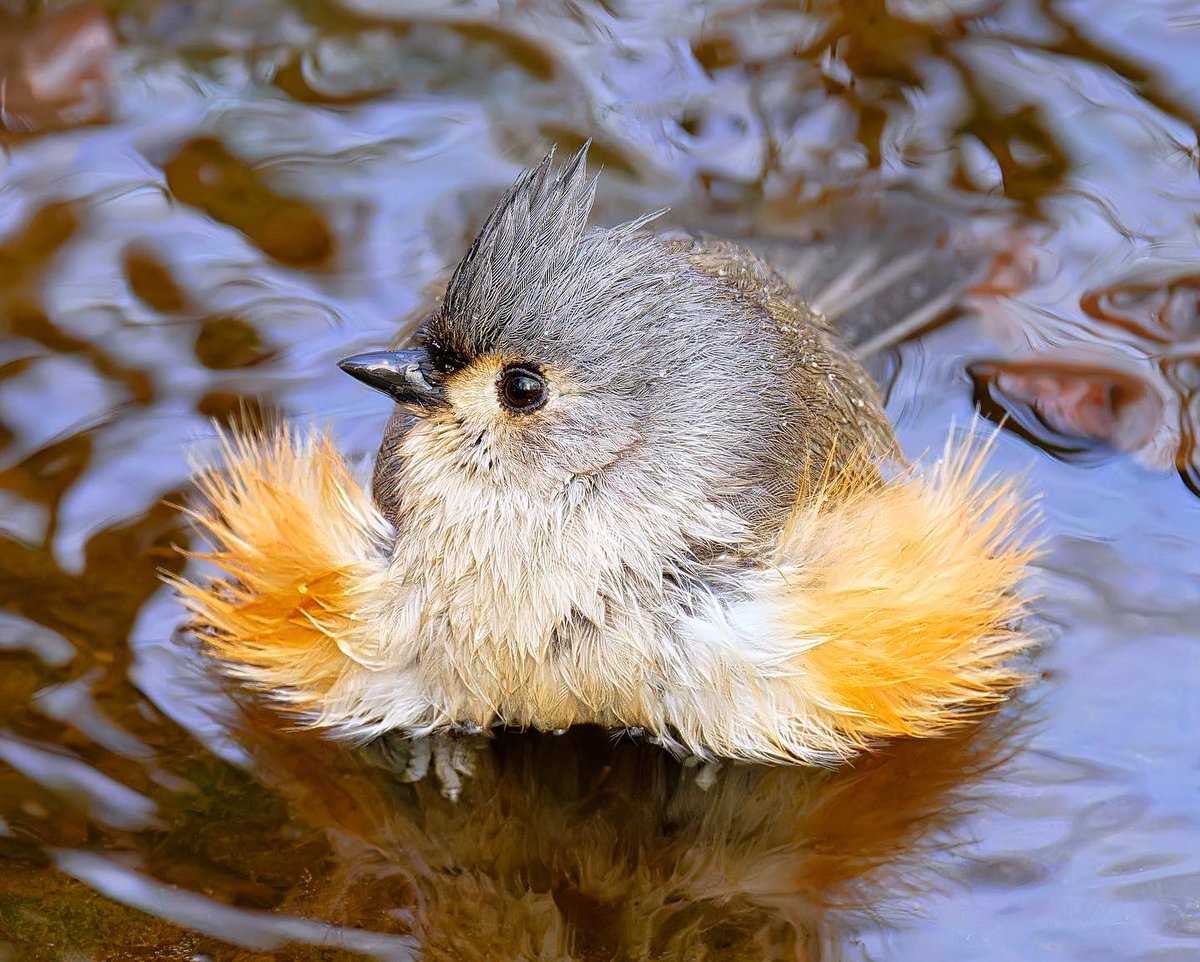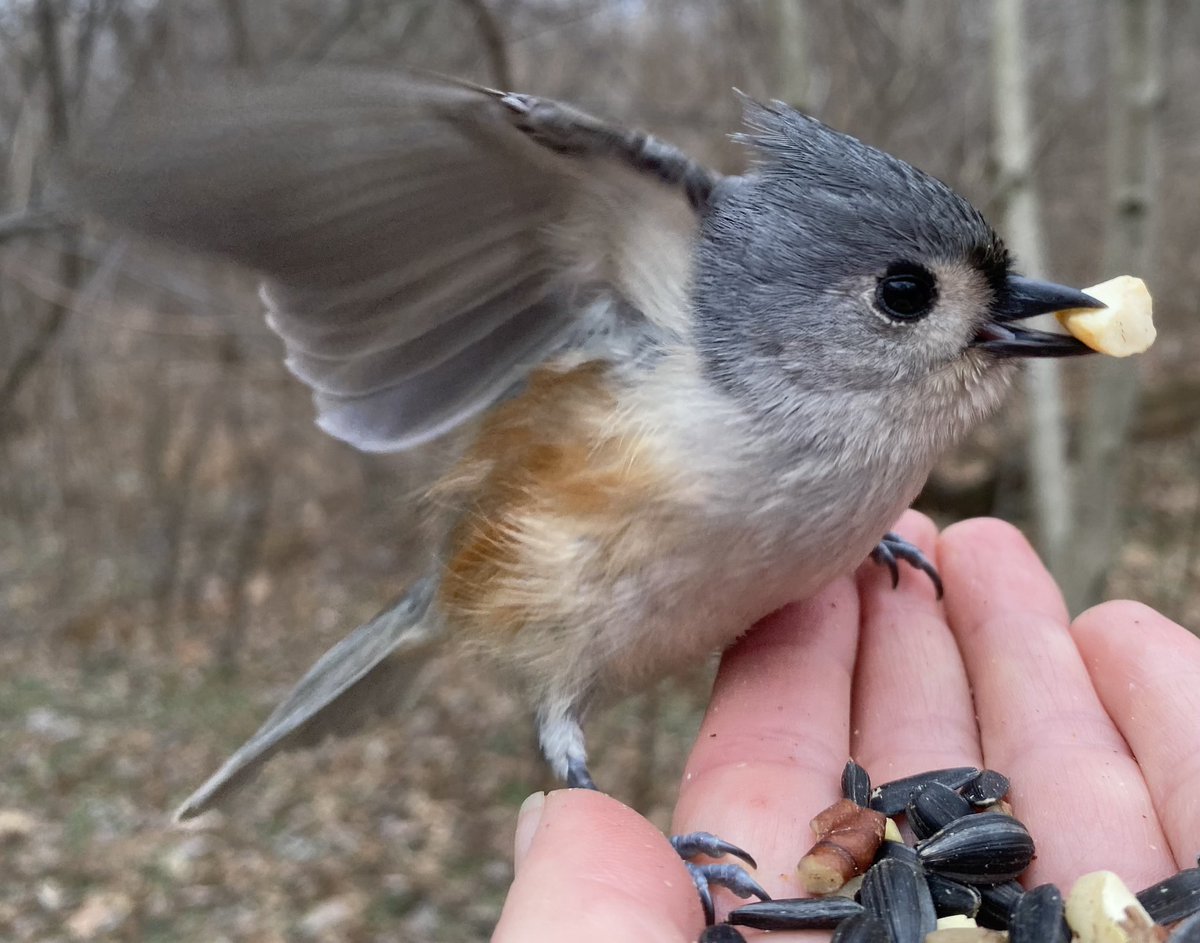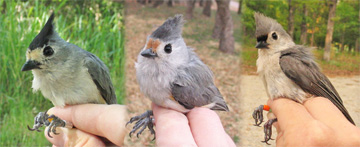Welcome to DU!
The truly grassroots left-of-center political community where regular people, not algorithms, drive the discussions and set the standards.
Join the community:
Create a free account
Support DU (and get rid of ads!):
Become a Star Member
Latest Breaking News
Editorials & Other Articles
General Discussion
The DU Lounge
All Forums
Issue Forums
Culture Forums
Alliance Forums
Region Forums
Support Forums
Help & Search
Birders
Related: About this forumCan ya help me out with who this little guy is?
Smaller than a chrested titmouse and has the brown along the wings.

10 replies
 = new reply since forum marked as read
Highlight:
NoneDon't highlight anything
5 newestHighlight 5 most recent replies
= new reply since forum marked as read
Highlight:
NoneDon't highlight anything
5 newestHighlight 5 most recent replies
Can ya help me out with who this little guy is? (Original Post)
AndyS
Jan 2023
OP
Tufted Titmouse are common here in the north. They flock with Chickadees in winter.
Donkees
Jan 2023
#2
sprinkleeninow
(20,609 posts)1. I dunno, but he/she a cutie! 😍 The gifts of nature are awesome!!
Donkees
(32,475 posts)2. Tufted Titmouse are common here in the north. They flock with Chickadees in winter.


Ruben Giron

AndyS
(14,559 posts)5. Yeah, that looks like him!
I also have a visitor that I've called a Crested Titmouse that's half again larger than this guy and all grey, no brown. I'll dig out a pic to share.
Donkees
(32,475 posts)8. The 'all grey visitor' might be a juvenile Black-crested, a hybrid, or possibly a Juniper titmouse.
The plain all-gray Junipers are further west:

The Juniper Titmouse is gray overall with a slightly paler gray belly. The dark eye stands out on an otherwise plain gray bird. The bill is also dark.
https://www.allaboutbirds.org/guide/Juniper_Titmouse/id#
The hybrid titmouse territory is described here:
Hybrids in Texas are only found in a narrow strip about 25-30 miles wide that stretches from the Gulf Coast northward through Austin and past the western side of Fort Worth, and then extends to the west at the Red River. In Oklahoma, hybrids are only found in the extreme southwestern corner of the state from just west of the Wichita Mountains northwestward to the Texas panhandle. Crest color of hybrid titmice ranges from gray to jet black. The foreheads of hybrids typically are brown or chestnut, while Tufted Titmice have black foreheads and Black-crested Titmice have pale foreheads. Identification of hybrids is especially difficult at the edges of the hybrid zone because their plumage looks closer to that of the adjacent distinct species.

https://nestwatch.org/connect/news/nestwatch-data-in-action-studying-hybridization-in-titmice/

https://nestwatch.org/connect/news/nestwatch-data-in-action-studying-hybridization-in-titmice/
CaliforniaPeggy
(152,559 posts)3. A beautiful photo, Andy! Thanks for sharing. n/t
we can do it
(12,796 posts)4. Tufted timouse, so cute!
AndyS
(14,559 posts)6. Yeah, that seems to be the answer. Thanks.
hlthe2b
(106,984 posts)7. Definitely a "cutie pie"... but species, I couldn't say.
IA8IT
(5,942 posts)9. One Fine Foto!!